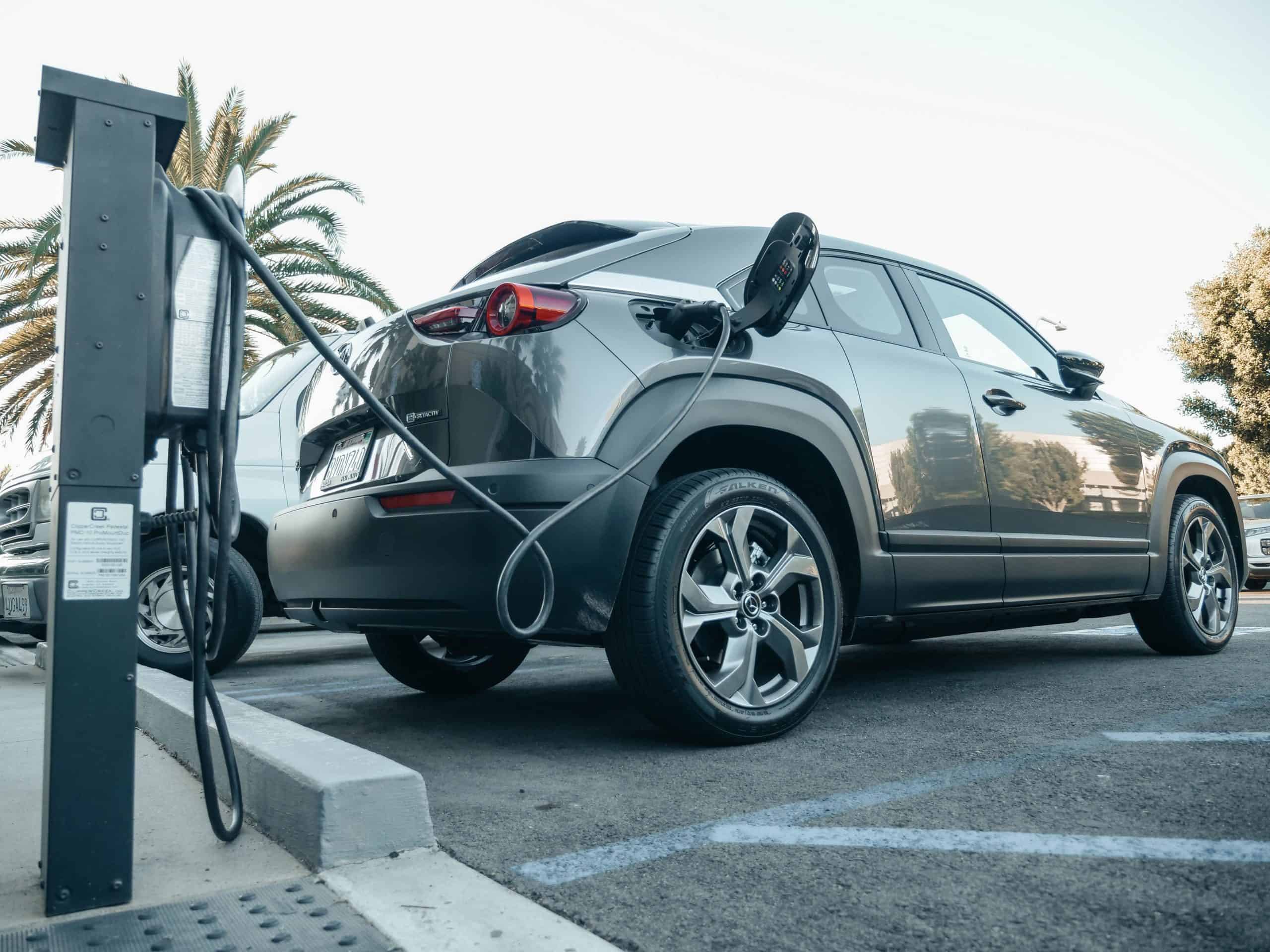Can electric cars really save you money?
Electric vehicles have been a trending topic over the past couple of years. In fact, with every year there are more people that decide to switch their conventional petrol car for an electric one. Sooner or later, many people might be required to make the change.
In 2020, the UK government announced that from 2030 all new petrol and diesel cars will be banned and only second-hand ones will be available.
There are 3 types of electric cars that you can choose from: Battery electric vehicles (BEVs), Hybrid electric vehicles (HEVs) and Plug-in hybrid electric vehicles (PHEVs). The way they work is different:
- The Battery electric vehicle runs fully on electricity.
- The Plug-in hybrid electric vehicle runs on both electricity and petrol or diesel. The car can run on electricity until it has enough in storage, after that it switches to petrol or diesel.
- Lastly, the hybrid electric vehicle cannot be plugged in but instead, it’s battery is charged by regenerative braking and by the internal combustion engine.
Should I buy an electric car or a normal car?
Buying an electric car, and especially a new one, is known to be quite expensive. The average price is £44,000, however, prices can vary from £17,350 up to £138,826, depending on the features of the car. At the same time, the average price of buying a new conventional car in the UK is around £38,585. This figure, of course, can become lower depending on the features and the model of the car, but it is clear that the purchasing price of the petrol and diesel cars is lower compared to the electric ones. To promote the switch to electric vehicles, the UK government offers the Plug-in car grant. It offers 2,500 off the purchase price, if the vehicle is zero emission and up to £35,000.
It might be the big upfront cost of electric cars that pushes back buyers, but the real money saving comes from the long-term use of the car. More specifically, the cost of running the car, is where the big difference comes in action.
If you drive an electric car in the UK, you will not be paying road taxes, which saves you £155 a year. Also, you will save on fuel bills. The average English driver makes 7,600 miles and spends around £1,200 on gas, which you will be able to keep in your pocket. If you charge your car at home, this can cost you £342 annually.
| Electric car | Conventional car | |
| Annual fuel/electricity cost | £342 | £1,200 |
| Annual road tax cost | £0 | £155 |
| Total | £342 | £1,355 |
*based on average annual miles
Charging your electric car
The main thing that prevents people from buying an electric car is the fear of not being able to charge whenever they need and that they might end up in the middle of nowhere with their car. However, that should not be an issue, because there are plenty of charging points available now all around the UK.
EV charging station on the street
There are around 42,000 charge points across England in over 15,500 locations. Average electricity rate in the UK is around 17p per kWh. Therefore, to charge a 60kWh electric car, it will cost between £9.00 and £9.90 and for 200 miles. Depending on the charging station and the car, you can fully charge your car in a few hours or less. For example, for a typical electric car with 60kWh battery, it takes around 7-8 hours to charge with a 7kW charging point. If you use a rapid charger with 50kW, you can add up to 100 miles in just 35 minutes.
It is possible to find free stations around supermarkets, shopping centers, hotels and parkings. However, there could be a limit on the time for charging or you might need to be a customer in the supermarket, for instance.
EV charging station at home
Charging your EV at home can be a convenient solution. There are green energy suppliers that offer good tariffs for customers that own electric cars. First, you need to install a charging station at your home. If you are planning to do so, you can benefit from the government’s Electric Vehicle Homecharge Scheme, which is a 75% contribution to the price of installation and up to £350.
Best EV Energy tariffs
If you plan to charge your car at home, it is best to choose a specific EV energy tariff. There are energy suppliers in the UK who offer energy tariff plans made for households with electric cars. Before choosing your energy supplier you should consider how many times a month you are charging your car, not how long it takes for your car to be fully-charged. Also, check out which energy suppliers offer a night tariff. If you tend to charge your car at night to have it ready for the work day, this could save you additional costs.
Is it possible to do long distance journeys with an electric vehicle?
With the current number of over 40 000 charging stations, ranging from normal to fast-charging, drivers can undoubtedly rely on their EV for long distances. To further promote the change to EV in the coming years, the government is increasing the number of charging stations every year.
Average car range
Most EV can run up to 150-200 miles before needing to be charged. However, depending on the model, this can go to more than 300 miles. Even if your car has a lower range, using the distributed charging stations on the highways, you should not have any problems.
Charging stations on highways
You can find charging stations on highways, and the good thing about them is that most of them should be either the fast or the super fast charging points that will fill up your car in no time. For instance, the green energy provider Ecotricity, installed rapid charging in 96% of motorway service stations.
So is getting an EV a good deal?
Switching to a new car, no matter the type, is always an expensive move. However, going for an electric car can not only have benefits for the environment but also for your pocket. If you plan to use your car for a few years, you could definitely see the cost-effectiveness of investing in an EV. Cars are a matter of personal preference, but in a few years Brits will have to embrace the zero emission life.








